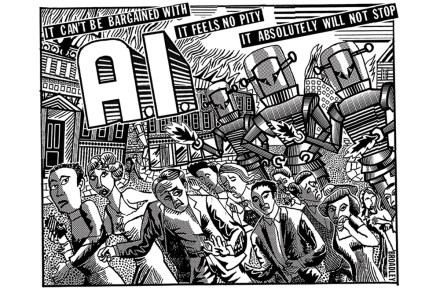Letters: why AI may be a force for good
Parris review Sir: Matthew Parris (‘Coutts, Farage and the trouble with choice’, 29 July) omitted to mention the initial, fundamental and obvious matter of the breach of client confidentiality committed by Dame Alison Rose, who he says should not have resigned. This is surely the gravest offence any bank official – let alone the head of NatWest – can commit. Yet he puts her resignation down to a ‘silly media storm’, which was actually started by the BBC, to whom the client information was given. Further, his article relates mostly to the discretion which institutions such as banks have in choosing who to admit. But this issue wasn’t about a client’s





















